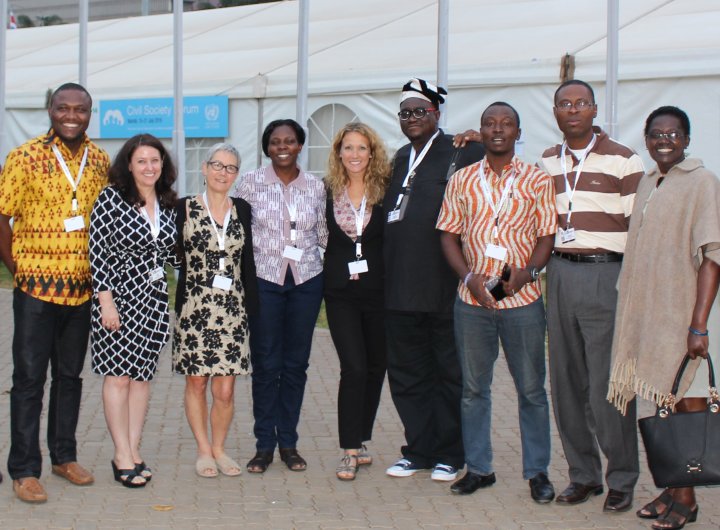Trade plays a defining role in determining the relations between countries. Among the major institutions that shape international trade agreements is UNCTAD. It has a history of making important progressive contributions that have helped to highlight the barriers that exist for developing countries and proposed innovative solutions. In continuity with its progressive legacy and in order to ensure that international trade structures benefit equitable trade, UNCTAD’s work can aim to ensure that the investment and trade rules mold a private sector that contributes meaningfully to the societies in which it operates. Every four years, member states meet to decide the mandate of the organisation for the next period.
In the build up to the event, the ITUC submitted a statement which outlined the priorities of the labour movement for UNCTAD 14. The shortfalls of the current structures in place for ensuring that trade works for the people it connects were highlighted. While national governments are ill equipped to deal with multinational giants on a fair footing, contributions of international organisations can often have contradictory impacts. This deficit makes for a porous global governance system in which gaps are being exploited by powerful corporations who are allowed to extract great wealth from some of the poorest countries. UNCTAD can play a vital role in addressing these imbalances. In particular, it could promote the inclusion of mandatory due diligence within International Investment Agreements (IIAs).
The Trade Union delegation was made up of representatives from South and North America, Africa and Europe. Meetings were held with European Parliament, US, Greek, Brazilian, Nigerian delegations, among others. The negative impact of deregulation and ISDS were challenged as they create a skewed system in favour of multinational interests that only serve to destabilise conditions for workers across the world. In a bid to give highlight the positions of civil society, a small demonstration was organised to show support for G77 positions. Beyond efforts to influence the negotiations of the outcome document, Trade Union representatives were involved in High-Level panels as well as side-events, the details of which you can find here.
Georgios Altintzis (ITUC) at the Civil Society press conference:
Yorgos Altintzis (ITUC): Investor responsibilities need to be assured and implemented. #UNCTAD14 broad mandate of @UNCTAD under threat pic.twitter.com/PY40PBsTsU
— TUDCN - RSCD (@TUDCN_rscd) 21 July 2016
The negotiations were determined by two contrasting visions of UNCTAD’s work for the next four years. On the one hand the EU and US pushed for a dilution of the development mandate of UNCTAD while, on the other, the group of over 100 countries, including most developing countries, that negotiate as a block known as the G77, pushed for a more ambitious mandate that challenged the current trends to deregulation and privatisation. Negotiations focused around four main areas: trade, investment, debt, and tax. With limited opportunity to engage in either negociations or in high level dialogue, civil society decided to mobilise in support of G77 positions.
The stalemate and resulting outcome document reaffirmed UNCTAD’s mandate. Some additional focus is placed on global macroeconomic and financial trends exposed and created by the global financial crisis, their systemic sources and their spillovers in developing countries; on responsible lending and borrowing and a range of other debt issues; on Financing for Development, through a newly-created Inter-Governmental Expert Group and on South-South and regional economic cooperation arrangements. Particularly disappointing was the failure to strengthen the mandate on the much needed governance instruments for global value chains. More details and analysis of the outcome document of UNCTAD 14 are available from here. Trade Unions strongly support the concluding statement of Civil Society condemning a lack of ambition to tackling growing inequalities across the world.



